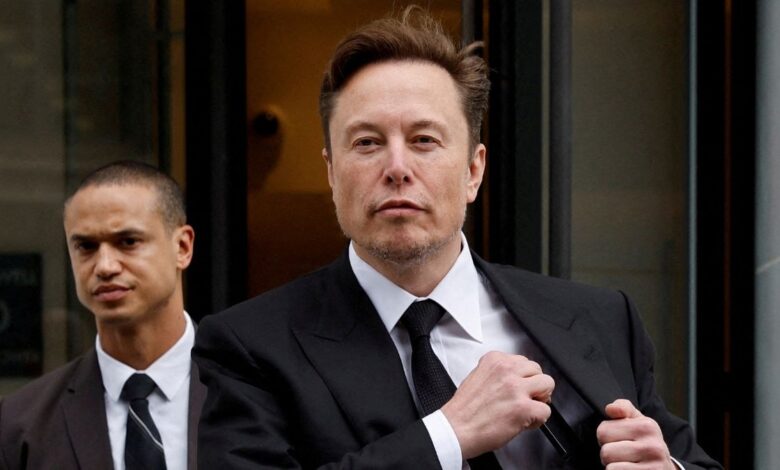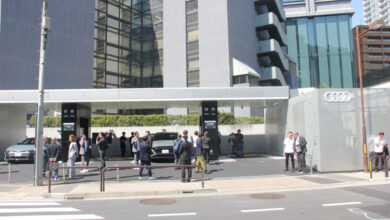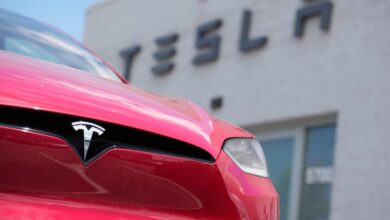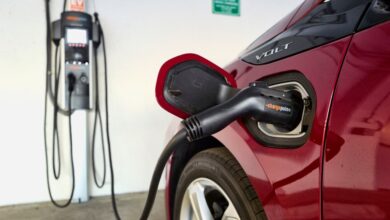Why Tesla layoffs could be bad news for Biden – Firstpost

Tesla CEO Elon Musk and his security detail depart the company’s local office in Washington, US on 27 January, 2023. File Image/Reuters
Recent developments within Tesla have raised concerns regarding the expansion of EV charging infrastructure, a critical component of Biden’s vision for electrifying US highways.
Musk’s decision to downsize Tesla’s electric-vehicle charging team has implications for the rollout of new fast-charging stations, potentially disrupting Biden’s efforts.
The National Electric Vehicle Infrastructure (NEVI) program, introduced by the Biden administration, earmarked $5 billion over five years to establish 500,000 EV chargers across the country. Tesla’s extensive network of fast chargers, known as Superchargers, was poised to play a pivotal role in this initiative.
Why is Elon Musk firing Tesla employees?
Tesla’s extensive series of layoffs continue as employees take to platforms like LinkedIn to share news of their termination from the company. The recent wave of layoffs, initially brought to light by reports from Electrek and Business Insider, appears to be impacting various departments within Tesla, including software, services, and engineering.
The exact number of affected employees remains unclear. However, reports highlighted at least seven individuals who publicly announced their layoffs on Sunday alone.
The current round of layoffs follows a series of cuts initiated last month, during which Tesla reportedly began downsizing
approximately 10 per cent of its global workforce
, totaling around 140,000 employees.
Notable casualties included Rebecca Tinucci, Tesla’s head of EV charging, along with her entire 500-person team, as well as Daniel Ho, the head of the new vehicles program.
Musk conveyed on X that the company undergoes a restructuring process every five years.
In an internal email to staff, Musk emphasised the necessity of making decisive cuts, particularly targeting those working under executives who fail to meet stringent performance criteria.
Bloomberg reported that Musk expressed a desire for layoffs reaching at least 20 per cent of the company, citing a corresponding decline in quarterly vehicle deliveries.
Tesla currently faces significant financial challenges, marked by a decline in sales and a 55 per cent decrease in profits compared to the previous year. These challenges are compounded by heightened competition in both the US and Chinese markets, coupled with a global decrease in demand for electric vehicles.
Musk announces $500 million investment
Following the news of layoffs, Musk announced a substantial investment in expanding the company’s fast-charging network, allocating over $500 million towards the initiative. “Just to reiterate: Tesla will spend well over $500M expanding our Supercharger network to create thousands of NEW chargers this year,” Musk said in a post
on his social media platform X
.
“That’s just on new sites and expansions, not counting operations costs, which are much higher,” he said.
He noted that this expansion would focus more on existing locations rather than new sites, which aligns with the company’s decision to slow down the pace of new location openings.
What are the implications for the industry?
Tesla’s change of plans not only affects its own operations but also has broader implications for the entire EV industry. The adoption of Tesla’s North American Charging Standard (NACS) by almost all automakers underscores the significance of Tesla’s charging infrastructure in shaping industry standards.
However, this shift opens up opportunities for other charging startups and recently laid-off Tesla employees. Charging companies like EVgo are actively recruiting talent affected by the layoffs, signaling potential shifts in the industry landscape.
Executives from charging companies have reported receiving inquiries from landlords seeking alternative partners for charging projects after Tesla’s withdrawal, reported Reuters.
The Biden administration has said that it remains vigilant regarding the situation, with state authorities closely monitoring developments.
While some states like Colorado express readiness to adapt their programs as necessary, others like Texas, a major beneficiary of NEVI funds, anticipate minimal impact from Tesla’s layoffs. However, the overall uncertainty surrounding Tesla’s shift in strategy poses challenges to the smooth execution of the NEVI program.
Also Read:
Tesla begins another round of layoffs, this time in software, service teams
“It’s going to delay NEVI rollout. There’s no question about it,” Aatish Patel, co-founder of XCharge North America, which makes EV chargers for fleets and charging station operators, told Reuters.
With inputs from agencies
Find us on YouTube



